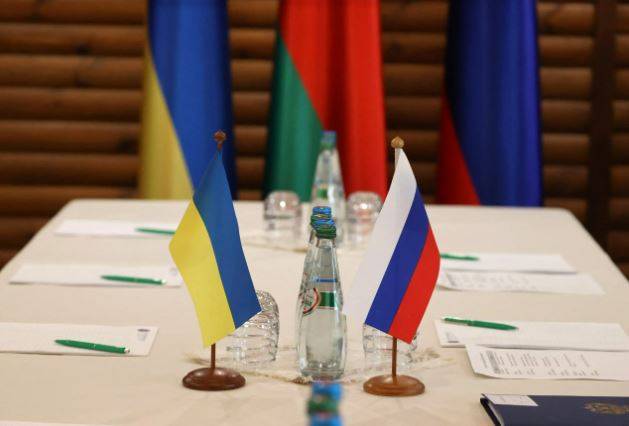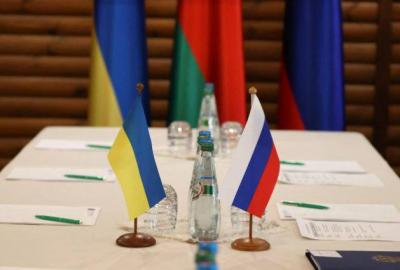As the Russian military operation continues on Ukrainian territory amid stalled negotiations between the two countries, Russia announced today that it no longer trusts the Ukrainian negotiators. Spokesperson for the Foreign Ministry, Maria Zakharova, stated that Moscow has lost confidence in the Ukrainian officials. She described Ukrainian President Volodymyr Zelensky as a dependent and non-independent figure who carries out orders from the United States and NATO, emphasizing that Washington and NATO are leading the operations in Ukraine, not Zelensky.
Furthermore, she clarified that Russia had agreed to resume negotiations to reach a solution at Kyiv's request, but this was followed by "chaos and circus," referring to the Ukrainian side's evasion. She commented on the actions of the Ukrainian negotiating delegation: "Sometimes they come, sometimes they abstain, and sometimes they participate and then refuse." She contended that "the regime in Kyiv is not independent, but under control," accusing it of using negotiations to distract and waste time.
The spokesperson also reiterated her criticism of the U.S. and NATO, deeming that they are managing the operation in one way or another. She confirmed that the Ukrainian president does not have control over the situation in the country, considering that he says one thing today and something else tomorrow.
These statements came after Ukrainian presidential advisor Mykhailo Podolyak announced yesterday the impossibility of determining a date for the next round of direct talks between the sides, asserting that negotiations with Russia to end the conflict have become more difficult and complicated. A member of the negotiating delegation stated that events in the besieged coastal city of Mariupol, which has been almost completely under Russian control for weeks, have "increased the complexity of the negotiations." He also noted that Moscow is betting on the second phase of its military operation in eastern Ukraine to strengthen its negotiating position.
It is worth mentioning that since the early days of the Russian military operation against its western neighbor on February 24, negotiations between the two sides have commenced, with several rounds being held, either directly or online, to reach a solution that establishes peace between the two countries. However, none of these meetings have resulted in any political outcomes. While Moscow insists on the neutrality of its western neighbor and the cessation of its NATO membership ambitions, as well as the disarmament of threats to its security, Kyiv demands multiple international guarantees to prevent any future Russian attacks on its territory. Kyiv also refuses to relinquish its sovereignty over regions in the east of the country or to recognize Russia's annexation of Crimea. Recent military developments have hindered and halted these negotiating rounds, particularly following the rapid operations in Mariupol and eastern Ukraine.




